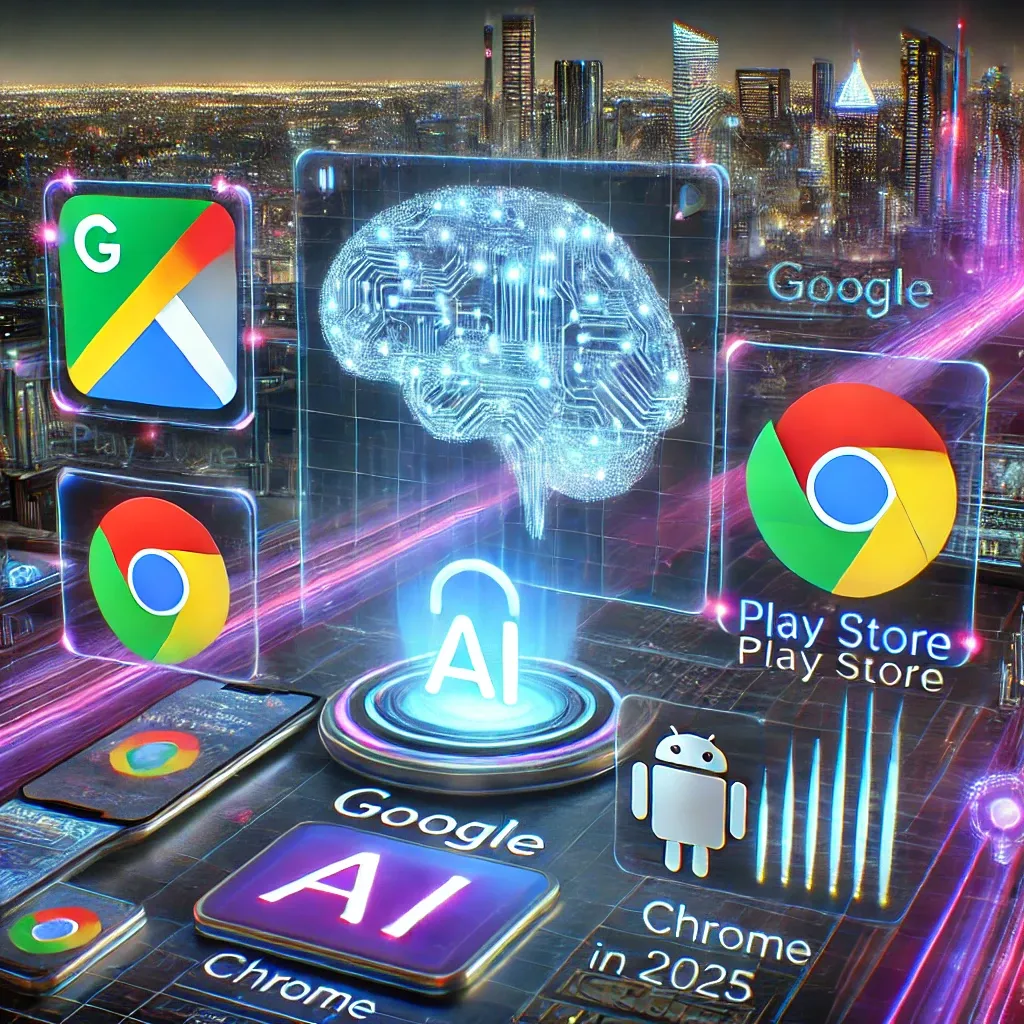Google AI and Apps in 2025: A Safer Year in Search with Maps, Play, Chrome, and How to Use Google
As 2025 approaches, Google continues to redefine innovation with AI-driven advancements across its products and services. From Google Maps to the Play Store, the tech giant is prioritizing safety, privacy, and seamless user experiences. This article explores how Google’s AI, Android ecosystem, and billion-user platforms like Chrome and Google Cloud are shaping a smarter, safer future.
Google’s 2024-2025 Vision: AI, Privacy, and a Safer Digital World
Google’s “Year in Search” campaign highlights its mission to make browsing safer by 2025. With generative AI tools like Gemini and breakthroughs from Google DeepMind, the company is integrating advanced AI models into everyday apps. Android devices will see enhanced security guidelines, while Google Search leverages AI to deliver faster, more accurate results. Privacy remains a cornerstone, with stricter data collection policies and end-to-end encryption across Google Drive and Workspace.
Android and Google Play: Empowering Developers and Users.
Android’s 2024 updates focus on empowering app developers with AI tools and Google Cloud APIs. The Play Store, hosting over 3 billion apps, now enforces stricter security guidelines to protect user data. New features like real-time malware scanning and transparent data privacy labels align with Google’s pledge for a safer app ecosystem. Meanwhile, Google’s $2 billion investment in AI research aims to help developers create smarter, context-aware apps for Android devices.
Chrome and Browsing: Privacy Takes Center Stage
Google Chrome, used by over 2 billion people worldwide, is rolling out AI-powered features like smarter tab management and real-time phishing detection. Enhanced “Browse Safely” modes and reduced data collection practices ensure user privacy. Integration with Google AI also allows Chrome to predict search intent, making it easier to find information securely.
Google Cloud and AI: Tools for Innovation
For developers, Google Cloud offers scalable AI models and generative AI prototypes to build next-gen apps. Startups in the United States and beyond can “get started” with $300,000 in credits through the Grow with Google initiative. Partnerships with Big Tech firms and Google Research labs are accelerating breakthroughs in quantum computing and smart home integrations.
Privacy and Security: Building Trust in 2025
Google’s data centers now run on 100% renewable energy, reflecting its commitment to sustainability. Android devices will soon feature on-device AI processing, minimizing cloud data transfers. Users gain more control over data privacy via their Google Account, with simplified settings for location history and ad personalization. The company’s updated Security and Privacy hub educates users on avoiding phishing and securing their digital footprint.
Products and Services Shaping Tomorrow
From Google Maps’ AI-driven route optimization to YouTube’s generative AI video summaries, innovation is everywhere. Google Workspace now includes Gemini-powered writing assistants, while Google Home evolves into a smarter smart home hub. Even the Play Store and App Store are collaborating on cross-platform security standards.
How to Use Google’s AI Tools for Everyday Life
-
Google Maps: Activate “Safer Navigation” for real-time accident alerts.
-
Google AI: Try Gemini for creative tasks or coding help.
-
Chrome: Enable “Privacy Sandbox” to limit third-party tracking.
-
Android: Use “Find My Device” to locate lost phones securely.
The Future Starts Now
With AI, privacy, and user-centric design, Google’s 2025 roadmap promises transformative changes. Whether you’re a developer leveraging Google Cloud or a casual user browsing safely with Chrome, the future of technology is here—and it’s built on trust.
Ready to explore? Visit Google’s “Get Started” portal today and join billions already shaping tomorrow.
Conclusion – Google’s 2025 Vision: Innovation Rooted in Trust
By 2025, Google aims to blend cutting-edge AI with uncompromising privacy across its ecosystem. From smarter Android apps powered by Gemini to energy-efficient data centers and safer browsing via Chrome, the company is redefining how billions interact with technology. Developers, businesses, and everyday users alike benefit from tools like Google Cloud, Workspace, and Maps—all designed to prioritize security and ease of use. As AI reshapes search, smart homes, and app development, Google’s focus remains on transparency and user control. The future isn’t just about innovation; it’s about building technology that people trust.
FAQs: Your Google AI, Privacy, and 2025 Roadmap Questions Answered
How is Google using AI to improve Google Maps in 2025?
Google Maps now integrates generative AI for real-time hazard detection (like accidents or road closures) and eco-friendly route optimization. The “Safer Navigation” feature, powered by Google AI models, also prioritizes well-lit roads and low-crime areas for nighttime travel.
What makes the Play Store safer in 2024-2025?
Google Play enforces stricter security guidelines, including real-time app scanning for malware, transparent data privacy labels, and mandatory compliance with Android’s updated data collection policies. Developers must also pass enhanced API and privacy audits.

